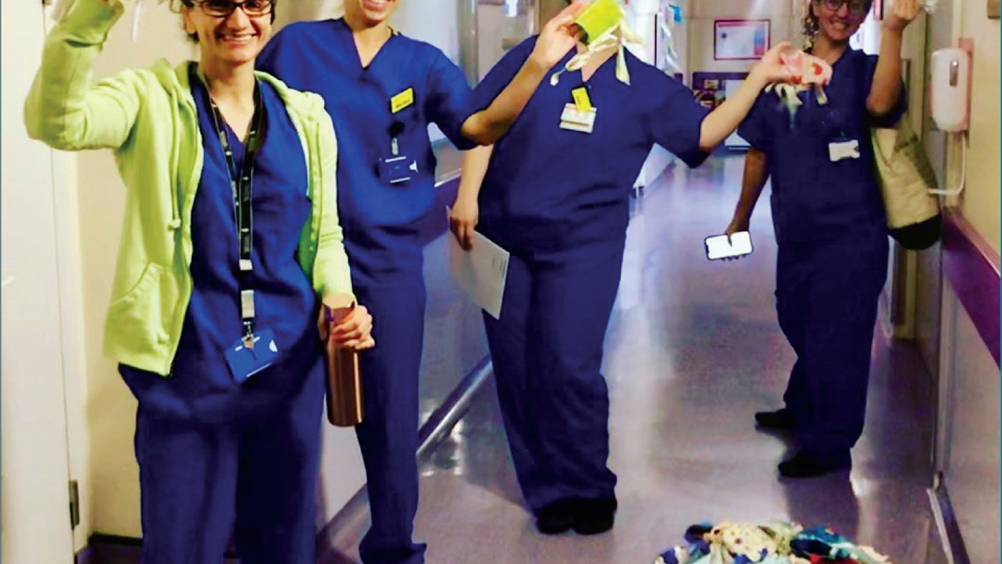References
Making masks for maternity staff

Abstract
Despite self-isolation, social distancing and NHS work during the COVID-19 pandemic, Sandra Denicke-Polcher and Anna Lawin-O'Brien found a way to make a joyous difference, connecting the community with healthcare providers on the shop floor
Reports about significant shortages of personal protective equipment (PPE) for midwives, nurses, doctors and healthcare support staff working for the NHS and worldwide during the COVID-19 crisis dominate the news. While the government and Public Health England (PHE) denied a shortage of PPE for weeks, the situation on the frontline remains critical. Healthcare providers in many trusts face frightening shortages of visors, masks and long sleeve gowns. With a substantive number of deaths from COVID-19 among NHS staff, the government's approach to PPE provision causes health concerns among care providers at every shift.
In early March, Carolyn Paul, an obstetric consultant from the Whittington Hospital, witnessed the fear of staff working without protective equipment while caring for general patients and started to sew homemade masks to lift their mood. The masks were beautiful and Carolyn together with her colleague, consultant Anna Lawin-O'Brien, started the morale-boosting project ‘masks_for_maternity.’
Anna then reached out to her friend, Sandra Denicke-Polcher, deputy head of architecture at London Metropolitan University, to draw her attention to the low morale among maternity staff at times of PPE shortage: ‘Do you have a sewing machine and can make face masks for maternity?’
Register now to continue reading
Thank you for visiting British Journal of Midwifery and reading some of our peer-reviewed resources for midwives. To read more, please register today. You’ll enjoy the following great benefits:
What's included
-
Limited access to our clinical or professional articles
-
New content and clinical newsletter updates each month

